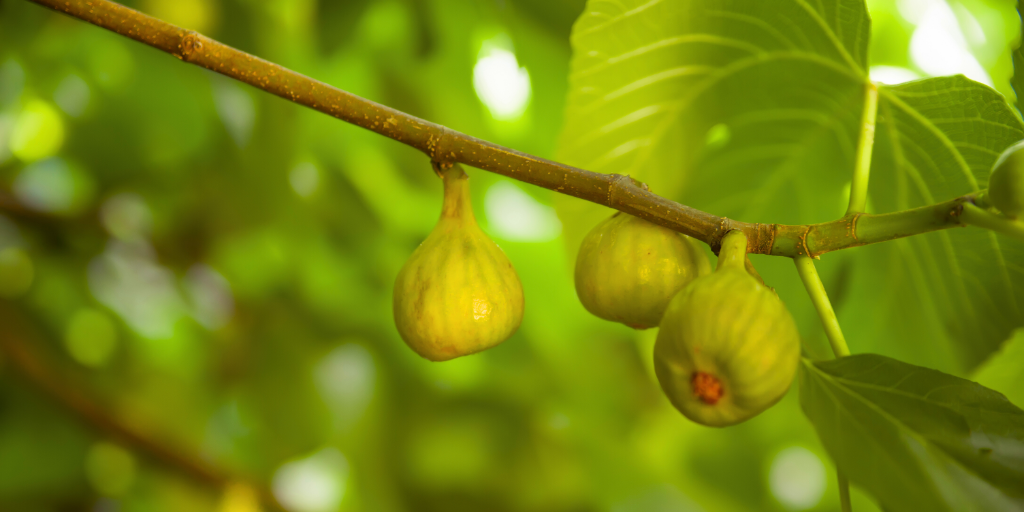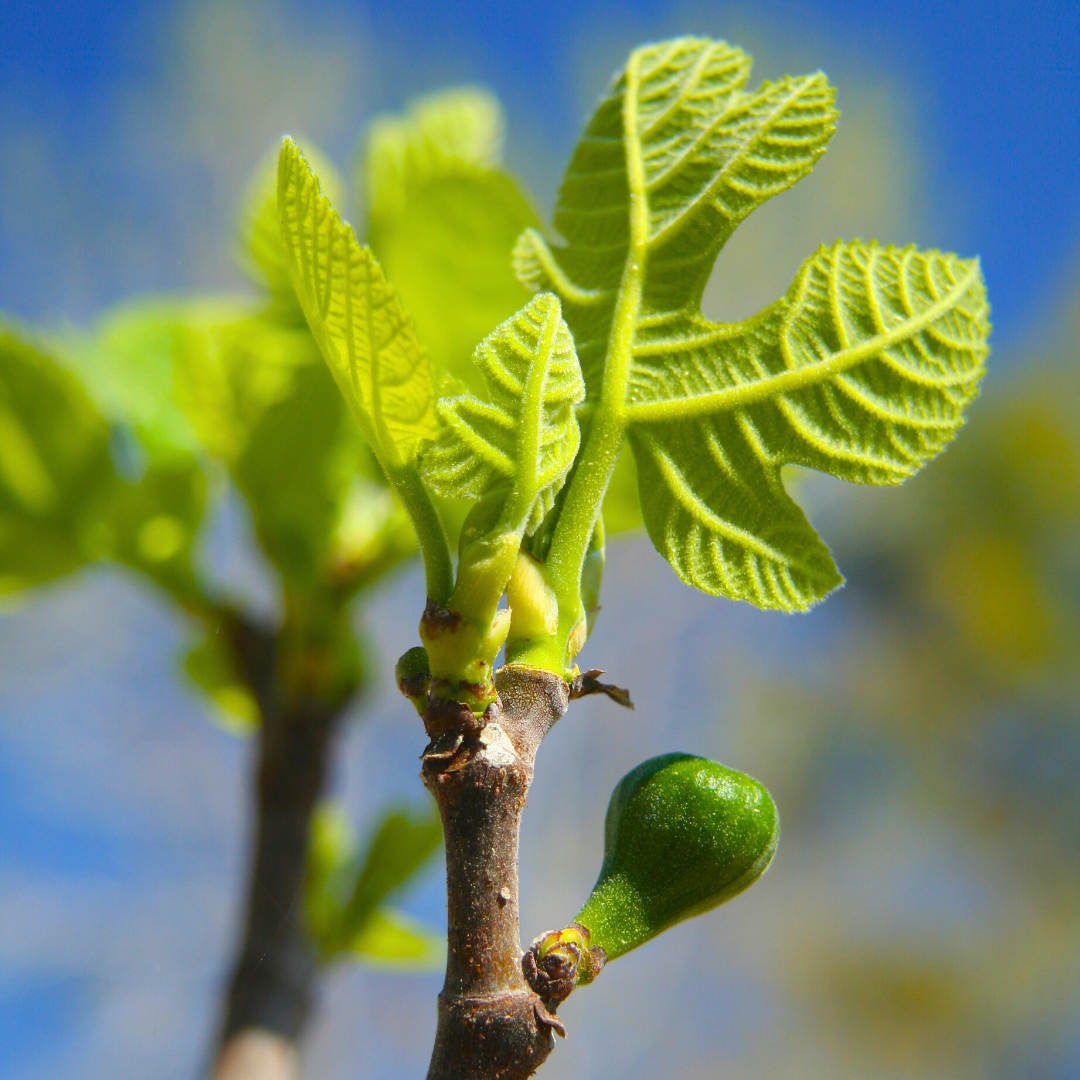
Lindsey Mitzel ponders Jesus' call, recorded in the Gospel of John, to abide with Him so we may have life abundantly.
“I am the vine, you are the branches. He who abides in me, and I in him, he it is that bears much fruit, for apart from me you can do nothing." (John 15:5, RSV2CE)
Last year I bought a baby fig tree. It flourished outside during the summer, then stagnated in the fall. Eventually, I brought the tree inside. Within the first few months, the tree lost two of the three figs it had produced. One day, I noticed several leaves were beginning to yellow. I read more about figs, gave the plant plenty of water, and hoped for the best. Things got worse from there. The fig began losing leaves daily. First, they would yellow and crumple, and then they would fall to the floor.
Eventually, I realized the tree had gnats; super annoying teeny black flies that thrive in moist potted soil and can damage plant roots. Despite several remedies, within a span of months, my fig had lost every single one of its leaves. I was devastated. Before the doomed leaves finally dropped, I fertilized the tree again in a last-ditch effort to strengthen it against what seemed inevitable. But every leaf was gone. Then, suddenly, one day, a tiny leaf unfurled from a long dormant appearing bud. Within days, the fig tree exploded with new growth. After a week, the fig had regained a full new set of leaves and had grown taller than before.

The word “abide” is used exactly ten times within the passage from John. The Greek word which is translated to mean “to abide,” “to wait,” or “to remain” is meno. Cross-referencing passages which also use the Greek word meno suggests a theme of faithfulness. The following are a few passages in which the Greek word meno is used.
In Matthew 11:23, Jesus admonishes those who saw miracles He performed, but did not repent. Jesus instructs His disciples in Mark 6:10 to stay in one place until they leave. In Mark 14:34, Jesus implores His disciples to stay with Him during his agony in the garden. When confronting a demonic, Luke specifically tells us the man had not lived in a house, but among tombs. Some other passages which use the Greek meno include Mary visiting her cousin Elizabeth and remaining with her. When Jesus calls His disciples, He is often asked where He is staying, and He often stays in homes. When the dove descends on Jesus at His Baptism, it “remains on him” (John 1:33). Finally, Jesus uses the Greek meno in describing the relationship we have with Him when we consume the Eucharist—He abides in us, and we in Him (John 6:56).

My struggling fig was simply three lifeless twigs before it suddenly burst forth again in foliage. Even though it appeared bare to my eye, life was hidden beneath its bark. How often do I choose something other than God, or something instead of him? How often do I place my time with him on the back burner, like the rice that slowly simmers noiselessly, and burns when I forget about it for too long? To abide with Jesus means that I live within Him and not apart from Him. When He and I are one, no matter how dead anything may appear on the outside, there is always life within. Conversely, if we are not one, no matter how life-giving my life may appear, when the water dries up, or the gnats infest, or nutrients run out, I will dry up and ultimately die.
“As the Father has loved me, so have I loved you; abide in my love” (John 15:9).
The Father loves Jesus completely and perfectly. They are fully one—in harmony. Jesus’ love for you is complete. Perfect. God gives us the opportunity to be fully one with him. Jesus is the most perfect lover, and yet the lie we tend to believe, like Eve, is that God is lacking, hiding something, or there is more that He isn’t giving to us. We don’t always associate homes with pleasant memories or feelings, yet a good home anchors us, makes us feel secure, and gives us a place to fully rest. Jesus wants to be this home for you. A place to fully rest and be loved securely and absolutely—without want of any kind.

Lord, in any places where this passage may be difficult for us to believe or hope for, I ask for Your grace to move any barriers so we can come intimately closer to You. Help us to abide every day in Your love for us. In the places that seem so lifeless, help us to believe that You bring dead things back to life, and nothing is impossible for You.
Share your thoughts with the Catholic Mom community! You'll find the comment box below the author's bio and list of recommended articles.
Copyright 2024 Lindsey Mitzel
Images: Canva
About the Author

Lindsey Mitzel
Lindsey Mitzel is a nurse practitioner and mom to four littles. When not wrangling with or reading to her kids, she can usually be found doing something outdoors. She appreciates dry humor, a good pun, and strong coffee. You can read more about her at Eight and a Half Months. Lindsey also occasionally writes for Be Love Revolution's Tiny Thoughts blog.


.png?width=1806&height=731&name=CatholicMom_hcfm_logo1_pos_871c_2728c%20(002).png)
Comments